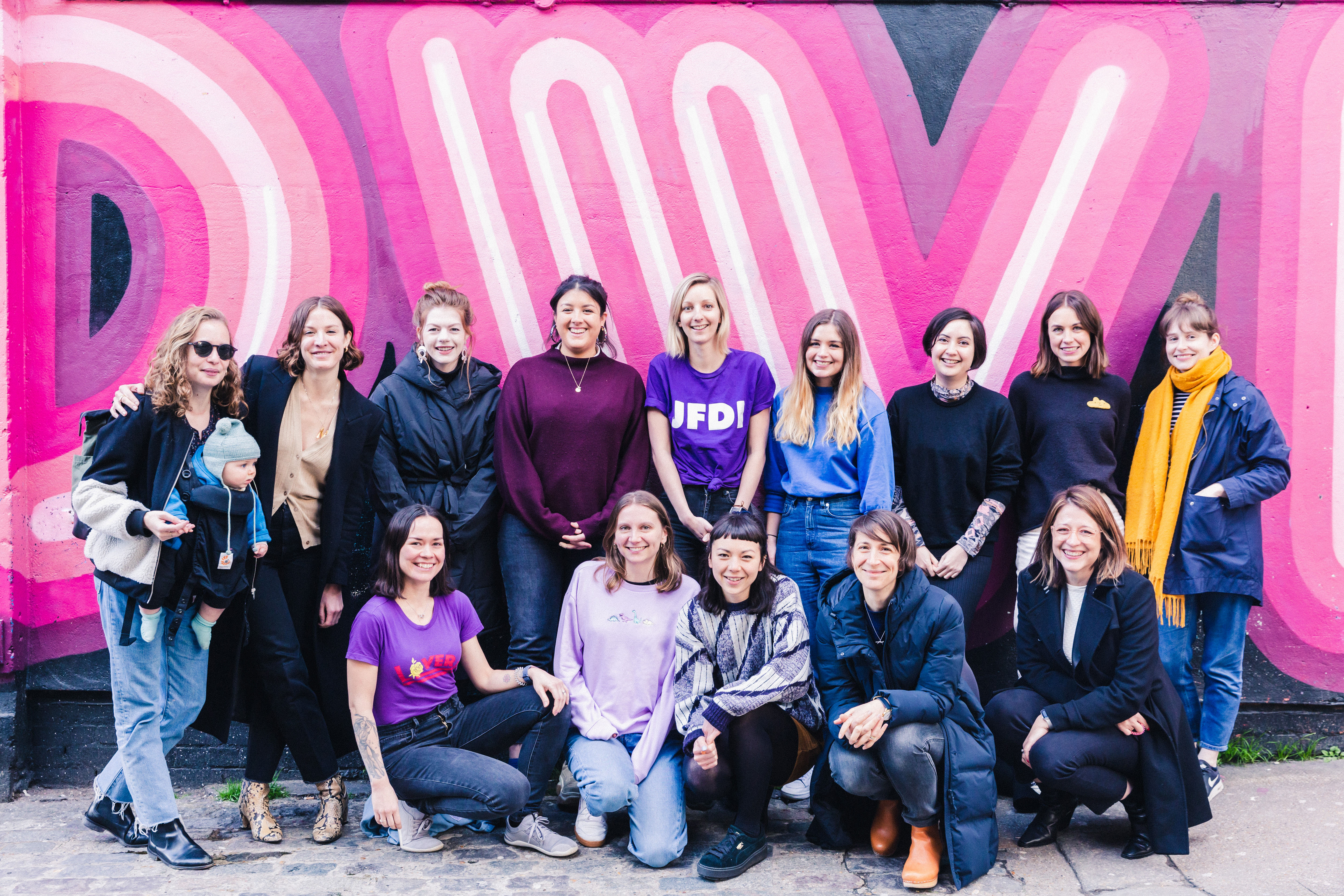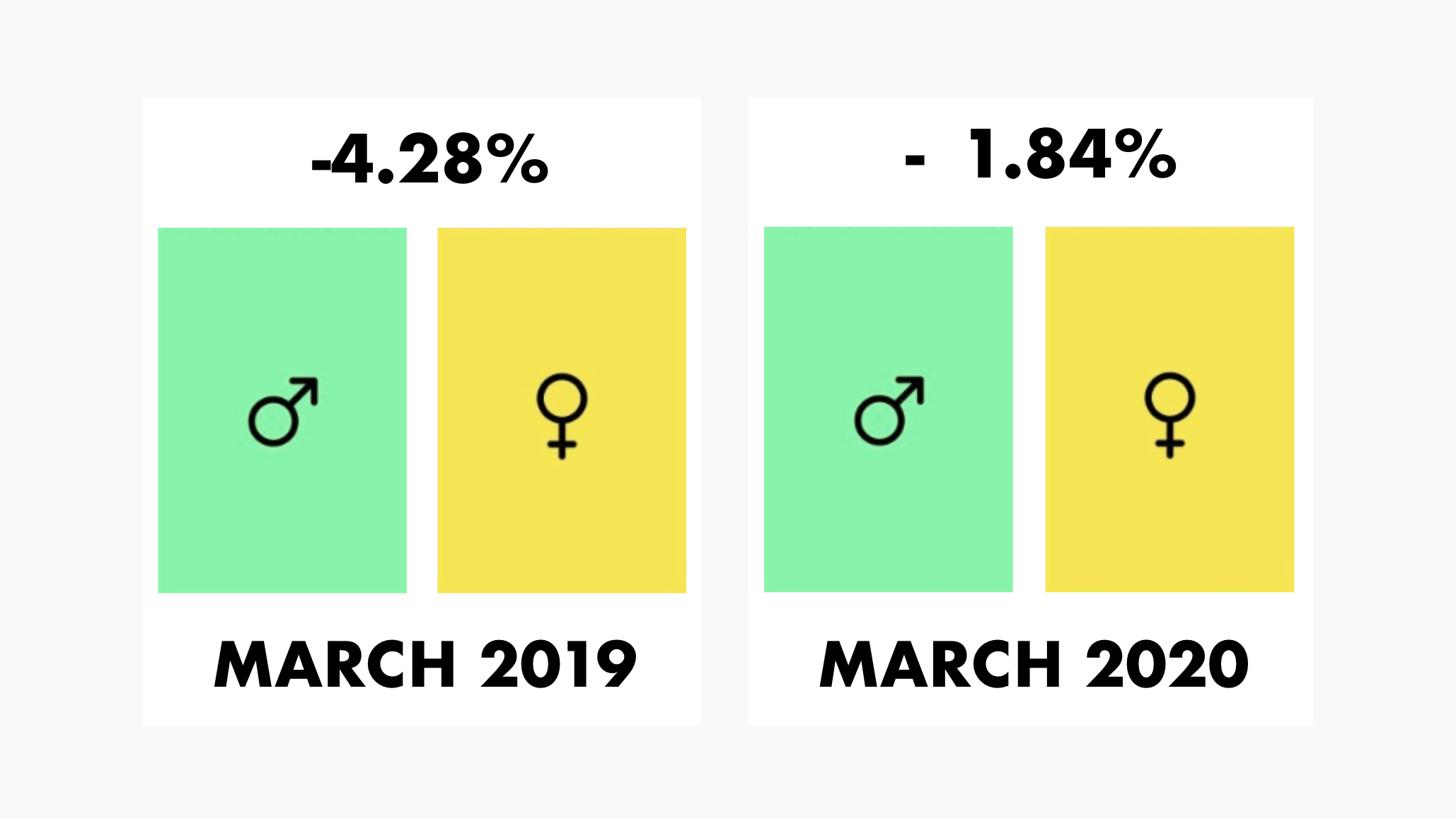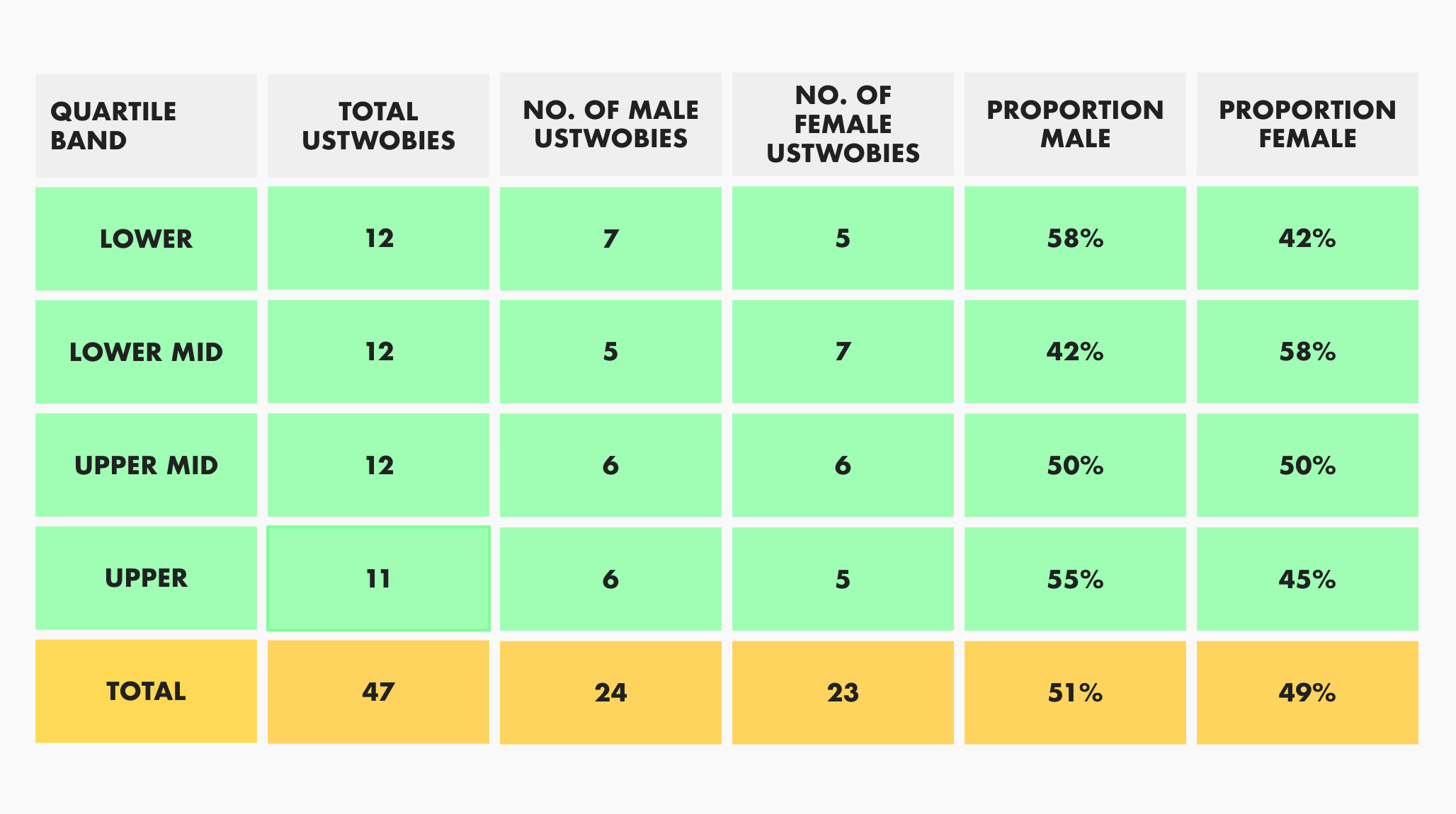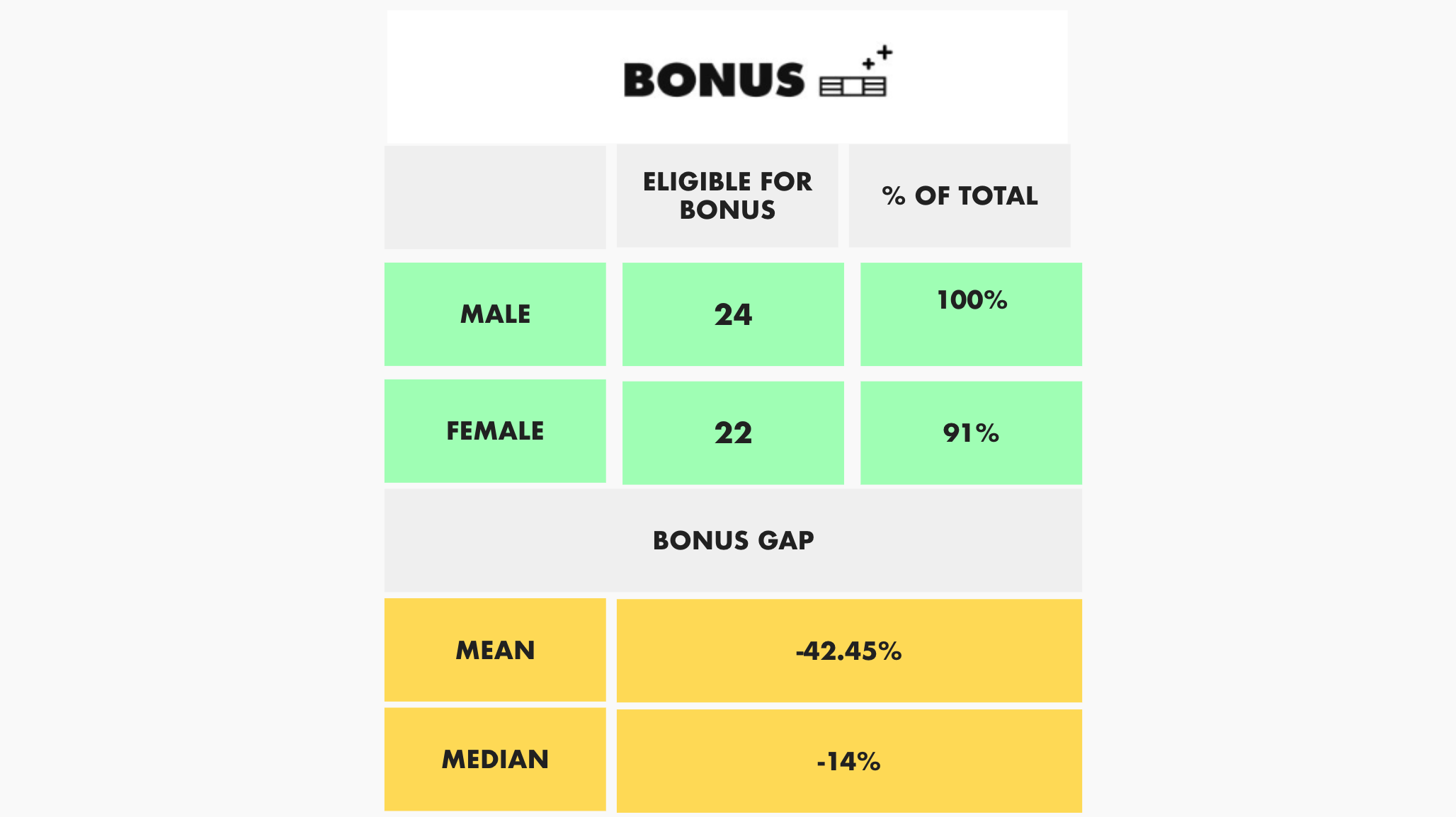
We are in the midst of a health crisis. People are losing loved ones, and many are suffering from financial hardship. We all know someone affected by this crisis. At ustwo London, we are immensely grateful for the incredible work being done by NHS workers, police, social workers, carers, teachers, delivery men and women, store workers, postmen and women, rubbish collectors and every single essential worker who is putting themselves in harm’s way, for us.
This year, companies aren’t required to publish their gender pay gap because of the Covid-19 pandemic, but we would still like to share ours because we believe pay parity remains an important issue.
It has been widely reported that women are harder hit economically by the outbreak of Covid-19 globally. Women are more likely to be primary caregivers to children and the elderly, they are also more likely to have part-time jobs, lower paid roles or take career breaks for childcare to raise a family. Because of these differences, women are likely to be paid less and have less in the way of savings which means their finances are hit hard when something like a lockdown takes place or, as many are seeing, they have to take a cut in work hours or pay. There’s less in the way of a cushion to take this impact and cover the days, weeks or months that might take place where there is no work.
We want to continue to shine a light on our data, and inspire others to do the same. If we don’t talk about it, we can’t push for change. And if we do talk about it, we may help to support women’s financial health during future global events like this.
A note on the data:Not everyone identifies as gender binary. We welcome people of all gender identities at ustwo. For these figures we have used the binary gender identity people choose when they register with HMRC: male or female. We hope that, in time, the binary nature of this choice will change.We’ve reported on our pay gap for three years now. By sharing our data even when we aren’t mandated to do so, we make sure that all ustwobies can see what is going on, as well as our clients and colleagues in the industry who we hope will share their data and work toward equality too.When we started reporting in 2017, we had a 3.5% gap; in 2018 it was 2.46% and last year it was -4.28%. This year it’s -1.84%. Below, we’re sharing further statistics following the legally mandated method of reporting:



Inclusion is more than gender pay gap stats. In our annual Diversity & Inclusion survey, 74% of those identifying as female felt they had a voice in decision-making, and 82% felt a sense of belonging. We need to continue to focus on improving those scores.
Beyond gender equality, we have much more work to do. Diversity & Inclusion is about more than gender pay gaps; it’s about representation and a sense of belonging from all groups. Ethnicity, disability and socio-economic diversity still need significant improvement.
We have been working with Flipside to further extend our outreach and ensure we work with interns from a diverse range of backgrounds, not just university graduates. This year we have focused on something new: an internal internship which provides an opportunity for one of our team to try out a horizontal move to a new discipline within the studio. We hope to be able to offer a junior position at the end of the internship. We are excited to see if we can create more opportunities like this as they allow us to retain and "retrain" talent.
When coordinating interviews, we are mindful to create a diverse panel of interviewers to best represent the diversity within our studio. In order to remove bias where possible, throughout the process we collect feedback from interviewers individually before we regroup as a collective to debrief and make a final decision. We also make use of scorecards to ensure we are keeping our feedback consistent and focused on the skills and attributes required for the role and not personal preference. Scorecards are a great tool to keep feedback consistent and allow us to make informed hiring decisions.
We pride ourselves on our determination to strive for fairness and equality across all metrics. We believe this is critically important, both because it’s the right thing to do and because it actively makes our business better. It really boils down to this: we seek to treat people well, to respect them as individuals, and to reward them appropriately for the talents, skills, experience and dedication they bring to bear in our work.
This post was co-authored by Nicki, MD of London, Lisbon and Tokyo studios, and Natasha, our People Lead. We’d love to know about things you’ve done to improve the diversity of your businesses. If you want to talk more please get in touch with nicki@ustwo.com and natasha@ustwo.com
